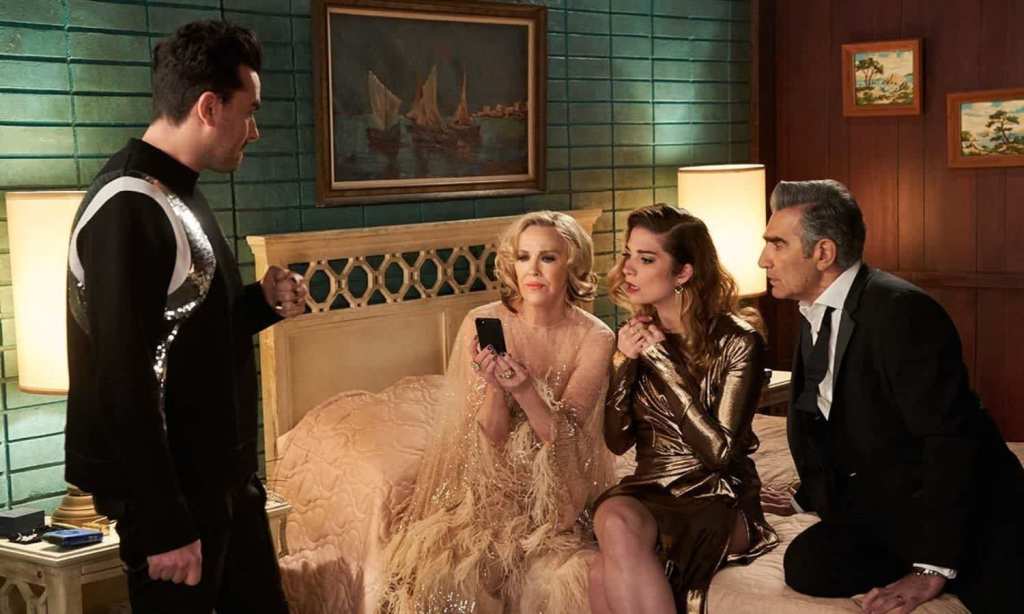There are two types of people in this world. The type that reads spoilers and the type that stays far away.
Whether it’s for the ending of a TV series, the last chapter of a book, or even a full recap of a film, some people are addicted to spoiling things for themselves. For those who aren’t, receiving an unwanted spoiler can be devastating.
Journalist Megan Pustetto relies on spoilers for a living. In her podcast, So Dramatic, the 29-year-old “brings exclusive reality TV tea, breaks down all the latest celeb scandals, and delves into all the drama happening in her own life too.”
Since its launch two weeks ago, the spoiler content has catapulted her number two on the Apple Australian podcast chart in the TV & Film category.
“With the recent closure of various media outlets due to COVID-19, I noticed a huge void in the entertainment media market that was no longer being filled,” she said during an interview with TheLatch—.
Her content, which is reality TV heavy, is designed to make people feel “they are more than just a viewer on the outside looking in,” which she believes, makes them feel “more invested in the show”.
“People will still watch even if they know the outcome because they are intrigued to see if it plays out how they imagined it would.”
In fact, her most common instant messages come from people “asking for more spoilers”.
“I feel like I give more than enough spoilers in my podcast, maybe even too many at times, but people just seem to have an insatiable appetite for more! It’s never enough!”
Studies at the University of California show that people enjoy something more after they read a spoiler. We asked psychologist Dr Beck Jackson, why this is.
“Yes, it’s funny. We assume that when people find out information about a story plotline or twist, out of sequence from the original script that it will spoil the story (hence the name spoiler), but this is not always the case.
“In fact under experimental conditions, a significant majority of people find that a controlled spoiler enhances the enjoyment and overall satisfaction with the story,” she said during her interview with TheLatch—.
“For those who love spoilers, they often want to prepare for tragedy, insure against emotional investment in the wrong characters or those who might be killed off, they may prefer experiential avoidance and not want to have the extreme emotional response created by the suspense or the unexpected plot twist. They may not like the emotional experience associated with feeling confused. These people may find greater enjoyment in perceptual fluency (when you can easily follow the storyline), and anticipating known events.”
Some fans even go on “spoiler hunts”, which has become entertainment in its own right.
“Many people love investigating possible plotlines and twists. Searching the internet for clues, reading interviews with actors, following fan pages and blogs. It’s a way to engage with fandom and be part of the bigger production of a show,” Dr Jackson said.
“For fictional shows, this ‘spoiler’ hunting becomes part of the enjoyment of the entertainment. In reality shows, I imagine this is a variation on the enjoyment some people have been emotionally invested in celebrity life.”
On the flip side, for those who find it incredibly frustrating, Dr Jackson says that knowing the ending can “diminish suspense or take away the enjoyment from trying to solve the plotline for themselves.”
“For these people, they don’t want you to give away the ending, the twists or the significant events. Sometimes this is because people enjoy being ’emotion junkies’ they love the emotional rollercoaster whether that be suspense, horror, fear, elation, shock or sadness.”
The common finding, Dr Jackson says, is that people like to have control over what they spoil for themselves.
“When others do the spoiling or it happens by chance when it wasn’t intended, that is usually when it degrades the enjoyment for the audience.”
—
Dr Bec Jackson has spent 20 years building her professional expertise across clinical psychology, academia, therapy and education in clinical, forensic and organisational psychology roles. Five years ago she founded The Jackson Company, a bespoke para-disciplinary consulting practice which combines her unique skills, experience and expertise. You can find out more about her here.
You can listen to the So Dramatic podcast here.
Read more stories from TheLatch— and follow us on Facebook.

